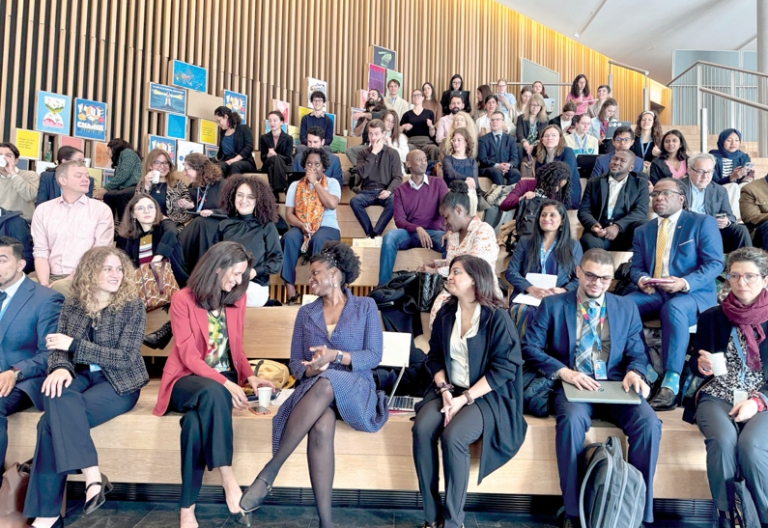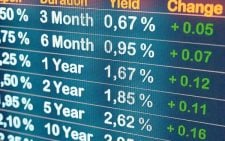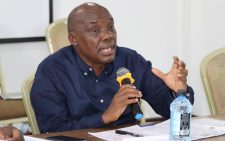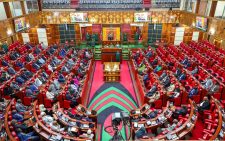Roadmap to new sustainable, inclusive future, beyond GDP

Representatives of different global stakeholders last week met at an international workshop to discuss how to develop a roadmap for transitioning to inclusive and sustainable economies for people and the planet.
The meeting, attended by experts in various disciplines, was motivated by the increasing global knowledge that the current financial and economic systems fail to adequately reflect the true wellbeing of our societies and ecosystems, which is essential for a sustainable future for all.
Writing in the International Institute for Sustainable Development (IISD) Earth Negotiations Bulletin, Livia Bizikova and Bingying Lou, said the meeting explored how societies can ensure intergenerational equity in the transition beyond Gross Domestic Product (GDP).
Titled, ‘Wat’s Next on Beyond GDP: A Roadmap to Inclusive and Sustainable Economies for People and Planet’, the workshop in Geneva, Switzerland also discussed how international collaboration can aid countries in implementing these changes.
Over 100 representatives from national governments, international agencies, the private sector, students, and civil society attended the workshop, which examined how governments can shift to new measures that encompass comprehensive wealth and long-term sustainability.
Discussions at the workshop followed up on the Pact for the Future, adopted at the September 2024 United Nations Summit for the Future, which emphasises the necessity for redefining prosperity beyond traditional economic matrices like GDP.
“It calls for the redesign of our economic systems to prioritise social and environmental values, moving towards a regenerative economy,” said Bizikova and Lou.
Future-fit
The high-level Summit for the Future brought together UN agencies, NGOs, civil society, academic institutions, the private sector and the youth aiming to forge a new global consensus on what our future should look like, and what we can do today to secure it.
UN Secretary-General António Guterres characterised the summit a “once-in-a-generation” opportunity to reinvigorate global action, recommit to fundamental principles, and further develop the frameworks of multilateralism so they are fit for the future.
World leaders at the summit agreed that the Pact for the Future recognised that climate change is one of the greatest challenges of our time, with adverse impacts that are disproportionately felt by developing countries, especially those that are particularly vulnerable to the adverse effects of climate change.
They committed to accelerate meeting their nations obligations under the UN Framework Convention on Climate Change (UNFCCC) and the Paris Agreement.
The Geneva workshop was organised by the Beyond Lab at the UN Geneva and IISD in partnership with Thinking Ahead on Societal Change (TASC) platform of the Geneva Graduate Institute, the UN Conference on Trade and Development (UNCTAD), Rethinking Economics, and the International Development Research Centre (IDRC).
Leaders of the convening agencies Özge Aydoğan, Director of the Beyond Lab, and Nathalie Bernasconi, Vice-President of IISD, opened the event. They outlined the need for a mind-set shift in how we think about development and progress, particularly in moving from why we need to move beyond GDP, to transitioning towards other measurements of progress.
Ambassador Matthew Wilson, the permanent representative of Barbados to the UN Office at Geneva, emphasised that efforts to move beyond GDP are intrinsically linked to resolving pressing current-day challenges.
The identified challenges include increasing debt, dwindling development assistance, and overall reform of the international financial system. He noted these challenges limit the ability of many countries to finance critical sectors for wellbeing, such as education and healthcare.
Minister-Counsellor, Permanent Mission of Germany to the UN Office at Geneva, Korin Goebel, emphasised the broader positive impacts of using different metrics of progress that promote sustainability and create complementary spillover effects with benefits for communities.
According to Bizikova and Lou, the workshop examined various tools and approaches to complement GDP, aiming to capture areas that GDP overlooks and promote investments that support long-term sustainability for humanity and biodiversity.
Brad Olsen, representing Infometrics New Zealand, discussed the application of the ‘living standards framework’ and proposed an indicator dashboard to build wealth and enhance the wellbeing of individuals and collectives.
Despite the challenges in collecting data on wellbeing, he emphasised the potential to use existing data as proxies to capture aspects of wellbeing and integrate these tools into policymaking.
Lara Fleischer, from the Organisation for Economic Co-operation and Development (OECD) Centre of Wellbeing, Inclusion, Sustainability and Equal Opportunity (WISE), presented OECD’s approach to measuring wellbeing.
This approach helps governments monitor societal progress and inform policy decisions across dimensions that matter for people, the planet, and future generations.
Bizikova highlighted the need for universal approaches to move beyond GDP. She presented the application of comprehensive wealth measures to complement GDP in Ethiopia, Indonesia and Trinidad and Tobago, using national data from these countries’ statistical offices.
The findings indicate slight growth in wealth, primarily driven by investments in fossil fuel-related infrastructure, overexploitation of natural capital, and limited progress in human capital. Bizikova also underscored the importance of supporting policymakers by sharing experiences and providing access to policy and planning tools to prioritise measures to support sustainable development pathways.
Inclusive perspectives
UNCTAD’s Anu Petola emphasised the advance that will be brought by the 2025 System of Accounts following the Summit of the Future, including stronger focus on net measures that account for the depletion of natural resources due to production, and their extension to wellbeing and sustainability considerations.
She also called for other strong metrics to balance economic considerations by measuring what we value, such as wellbeing, equality, sustainability, anticipatory governance, ethical and innovative economies, and resilience.
Additionally, she said a group of experts is expected soon to spearhead the development of indicators to complement GDP. A critical aspect of moving beyond GDP, the workshop heard, is to account for the needs and rights of future generations.
Climate and gender activist Amiliana Rickenmann, the co-founder of Latinas for Climate, emphasised the importance of incorporating youth perspectives as well as underrepresented populations in the transition beyond GDP.
She highlighted the need to ensure a just transition, including better integration of climate and social justice in economic accounting. Rickenmann underscored the importance of including future generations in decision-making processes, not as mere tokens, but as real participants and change makers.
Pointing out the challenges and increasing uncertainty the global community is currently facing, participants at the Geneva workshop called for stronger efforts and the need to sustain the growing momentum to use beyond GDP measures.
Among key next steps, they identified the need to integrate and commit to use indicators to complement GDP in other global initiatives, such as the outcome documents and reporting and monitoring efforts for the forthcoming Fourth International Conference on Financing for Development (FfD4) to be held in Spain in June, and the Second World Summit for Social Development (WSSD2i) in November in Doha, Qatar.
The ‘Food for Thought’ paper for the WSSD2 outlines the substantive elements shaping the Political Declaration, highlighting critical priorities such as poverty eradication, decent work, social inclusion, digital transformation and climate resilience.
It aims at achieving the main outcome of the summit – ensuring bold and action-oriented agenda for global social development.















